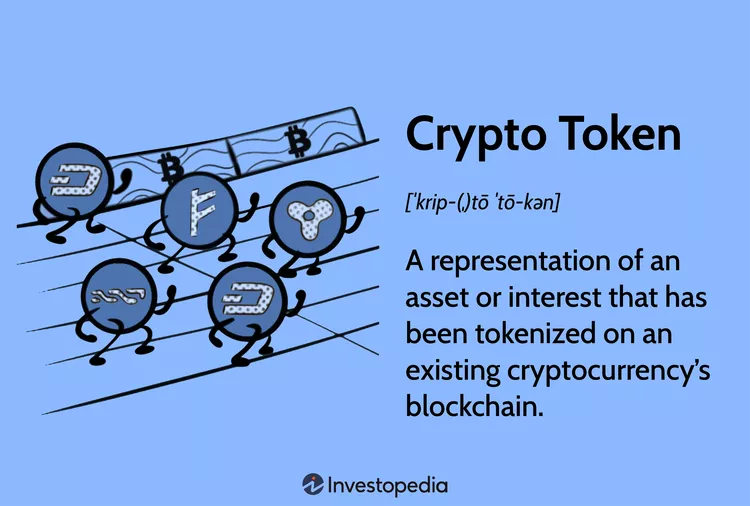In the rapidly evolving world of digital finance, crypto tokens have become a pivotal concept. These digital assets, distinct from traditional cryptocurrencies like Bitcoin or Ethereum, offer a diverse range of functionalities and applications. This article explores what crypto tokens are, how they work, and their significance in the cryptocurrency ecosystem.
Understanding Crypto Tokens
Crypto tokens are digital assets created on existing blockchain platforms, primarily Ethereum. Unlike cryptocurrencies, which operate on their own blockchain, tokens utilize the infrastructure of a blockchain to represent various assets or utilities. There are two main types of tokens:
- Utility Tokens: These provide users with access to a product or service within a specific platform. For instance, you might use a utility token to access premium features on a decentralized application (dApp).
- Security Tokens: These represent ownership in a real-world asset, such as equity in a company or a share in a real estate project. Security tokens are subject to regulations similar to traditional securities.
How Crypto Tokens Work
- Creation and Issuance: Crypto tokens are generally created using smart contracts on blockchain platforms. For example, Ethereum’s ERC-20 standard allows developers to issue their tokens easily. A smart contract defines the rules and functionalities of the token, such as its total supply, divisibility, and transferability.
- Transaction and Use: Once issued, tokens can be transferred between users just like cryptocurrencies. They can be used within their respective platforms for various purposes—buying services, participating in governance, or earning rewards.
- Integration with Blockchain: Crypto tokens leverage blockchain technology to ensure transparency and security. Each transaction involving tokens is recorded on the blockchain, making it immutable and traceable.
The Role of Crypto Tokens in the Market
Crypto tokens play a crucial role in the cryptocurrency ecosystem:
- Funding and Investment: Tokens are often used in Initial Coin Offerings (ICOs) or Initial DEX Offerings (IDOs) to raise funds for new projects. Investors purchase tokens with the expectation that the project’s value will grow.
- Decentralized Finance (DeFi): In the DeFi space, tokens are used for lending, borrowing, and earning interest. They facilitate a range of financial activities without intermediaries.
- Governance: Many tokens grant holders voting rights within a platform, allowing them to participate in decision-making processes and influence the development of the project.
Key Considerations
- Regulation and Compliance: Security tokens are regulated under financial laws, whereas utility tokens face less stringent scrutiny. However, the regulatory landscape is continually evolving.
- Volatility: The value of crypto tokens can be highly volatile. Investors should carefully consider market trends and project fundamentals before investing.
Conclusion
Crypto tokens are an integral part of the blockchain revolution, offering a wide array of functionalities from accessing services to representing ownership in real-world assets. By understanding how they work and their applications, investors and users can better navigate the dynamic landscape of digital assets. As the technology and regulatory environment continue to develop, the role of crypto tokens in shaping the future of finance is set to expand.
This article aims to provide a clear, SEO-friendly explanation of crypto tokens while catering to both beginners and more advanced readers.
